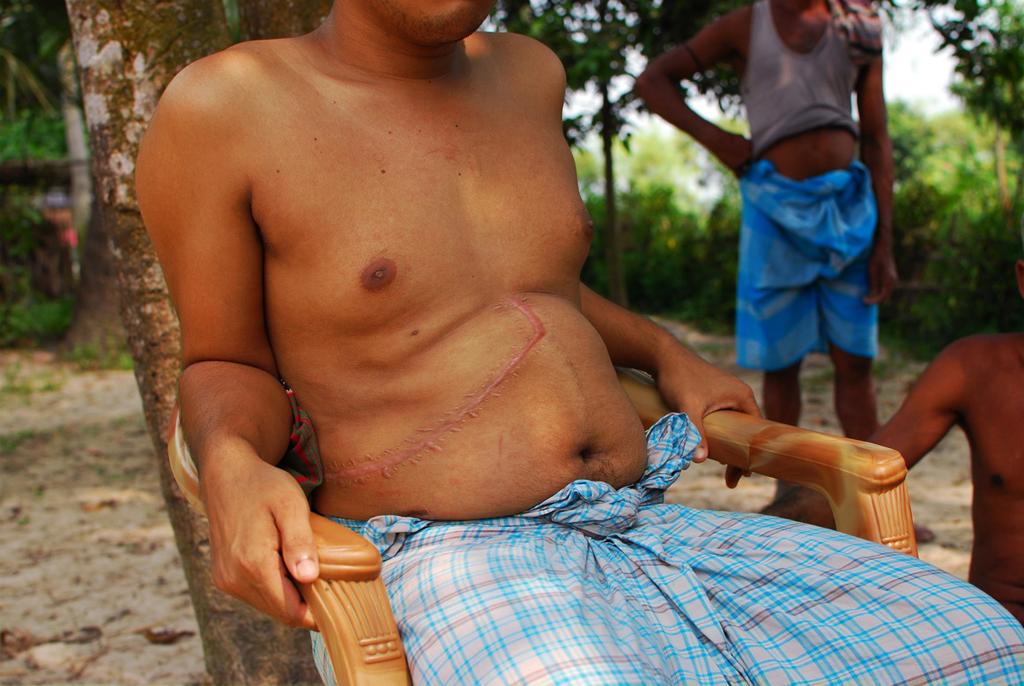Girl murdered for her organs at Indian health clinic, parents say
23-year-old Mehdi Hassan, from Bamongram village in northeastern Bangladesh, sold part of his liver to an black market organ broker and received nothing in return.
It sounds like something out of a horror story–parents say that their young daughter was murdered at a clinic so the staff could harvest her organs.
Reporters have confirmed that Gurkiren Kaur Loyal, 8, died suddenly in India on April 2. Her body was then returned to her parents' home in the United Kingdom. But they didn't receive the whole body–all of the organs were missing, with only her eyes remaining. The local coroner's office in the UK is angry because the missing organs make it impossible to figure out why she died. They opened an investigation in April to try finding out, the Guardian reported.
More from GlobalPost: Inside Bangladesh's organ trade
ITV News has been reporting on the case regularly since the story first broke and was able to confirm from doctors at the Indian health clinic that they did in fact remove her spleen, kidneys, liver, small intestine, stomach, heart lungs and brain. The doctors claim they did so to determine Gurkiren's cause of death.
But her parents say the organs were taken without their permission.
Gurkiren was being treated for dehydration at a clinic in Punjab. Suddenly, a nurse gave Gurkiren a shot, her mother Amrit Loyal says. "I said, ‘What is the injection for? She doesn't need an injection she just needs a saline drip for half an hour or 45 minutes,'" she told ITV.
"He didn't answer me at all, he just gave me a blank look and totally ignored me and just inserted the needle into a syringe and as soon as he pushed it in her neck flipped backwards.Her eyes rolled over and she turned a grayish-whitish color. She just blinked twice and her mouth was left open."
It's long been known that there is an illegal trade of black market organs–not just in India, but across the world. Several years ago, GlobalPost spoke with Mehdi Hasan, a young man in Bangladesh who sold 60 percent of his liver, willingly, in exchange for the promise of earning about $3,000.
The story you just read is accessible and free to all because thousands of listeners and readers contribute to our nonprofit newsroom. We go deep to bring you the human-centered international reporting that you know you can trust. To do this work and to do it well, we rely on the support of our listeners. If you appreciated our coverage this year, if there was a story that made you pause or a song that moved you, would you consider making a gift to sustain our work through 2024 and beyond?
